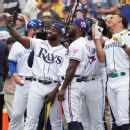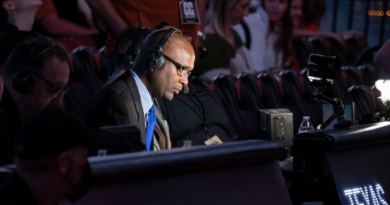20 sleeper picks to target in 2024
We talk a lot about “value” on these pages, but to define it succinctly, value is when we discover that an opinion we hold about a player rises well above everyone else’s.
I’ve got opinions, just as you should, and here’s the place where I share my strongest ones. The 20 names listed below represent my preferred draft targets — the players I feel the most passionately about for the upcoming season. It’s me effectively showing my hand, sharing with you the names of players I most hope to draft this season. (Alas, by revealing them, there’s now an excellent chance I won’t find the asking price on a single one to be a worthwhile value.)
The following players cover a wide range of league types, primarily ESPN’s standard points-based format, but also 12- and 15-team mixed leagues, rotisserie leagues and AL- and NL-only formats.
Good luck in your drafts!
 Francisco Alvarez, C, New York Mets: There’s more intrigue at the catcher position in fantasy this season than we’ve seen in quite a few years, and Alvarez (not to mention other up-and-comers like Gabriel Moreno, Bo Naylor and Austin Wells) is one of the big reasons why waiting at catcher is once again a viable strategy. Alvarez’s raw power rivals anyone’s at the position as, among catcher-eligibles, his 25 home runs ranked second, his 12.8% Statcast Barrel rate was third and his .228 ISO was fourth (among those with at least 300 plate appearances).
Francisco Alvarez, C, New York Mets: There’s more intrigue at the catcher position in fantasy this season than we’ve seen in quite a few years, and Alvarez (not to mention other up-and-comers like Gabriel Moreno, Bo Naylor and Austin Wells) is one of the big reasons why waiting at catcher is once again a viable strategy. Alvarez’s raw power rivals anyone’s at the position as, among catcher-eligibles, his 25 home runs ranked second, his 12.8% Statcast Barrel rate was third and his .228 ISO was fourth (among those with at least 300 plate appearances).
Meanwhile, his strong framing metrics suggest he’s adapting quicker than expected to the defensive chores of catching. The Mets don’t fancy themselves as title contenders this season, but rather for 2025 and beyond — and Alvarez will play a huge part in that future. He should play as frequently as any catcher and is a strong bet to pace his position in home runs.
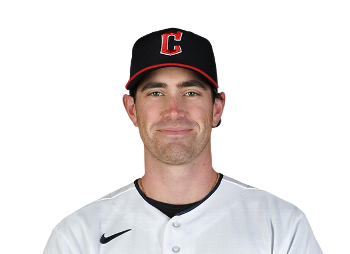 Shane Bieber, SP, Cleveland Guardians: By now you’ve surely heard that he spent the offseason working out at Driveline, where his four-seam fastball reportedly averaged 93.2 mph, well in range of his 2018-20 peak numbers. All indications are that he has carried that velocity spike into his spring games, and let’s not forget that he’s only two years removed from his 2022 top-15 SP fantasy point total, where his velocity was markedly down (91.3 mph average). One of the things I’ve most liked about Bieber over the years is his pitch creativity and willingness to adjust, so any sign that he’s trying to improve his repertoire is intriguing.
Shane Bieber, SP, Cleveland Guardians: By now you’ve surely heard that he spent the offseason working out at Driveline, where his four-seam fastball reportedly averaged 93.2 mph, well in range of his 2018-20 peak numbers. All indications are that he has carried that velocity spike into his spring games, and let’s not forget that he’s only two years removed from his 2022 top-15 SP fantasy point total, where his velocity was markedly down (91.3 mph average). One of the things I’ve most liked about Bieber over the years is his pitch creativity and willingness to adjust, so any sign that he’s trying to improve his repertoire is intriguing.
 Evan Carter, OF, Texas Rangers: While Wyatt Langford might be getting as much (if not more) attention for his standout spring, Carter has been comparably excellent during Cactus League play thus far. That’s hardly surprising after he was similarly good in both a 23-game September audition as well as during the team’s World Series quest. Carter possesses top-shelf plate discipline, speed and defense, things that make him one of the highest-floor rookies in baseball. Don’t expect a significant power contribution, but a campaign hitting .280 with 15 HRs and 20 SBs is well within his reach.
Evan Carter, OF, Texas Rangers: While Wyatt Langford might be getting as much (if not more) attention for his standout spring, Carter has been comparably excellent during Cactus League play thus far. That’s hardly surprising after he was similarly good in both a 23-game September audition as well as during the team’s World Series quest. Carter possesses top-shelf plate discipline, speed and defense, things that make him one of the highest-floor rookies in baseball. Don’t expect a significant power contribution, but a campaign hitting .280 with 15 HRs and 20 SBs is well within his reach.
 Carlos Correa, SS, Minnesota Twins: Plantar fasciitis plagued him for much of 2023, leading to the worst season of his nine-year MLB career. All indications this spring, however, are that those issues are now behind him — several reports suggest that the injury subsided in December — and let’s not forget that he’s just 29 years old, three years removed from a 26-HR season and only two years since a .362 wOBA campaign. Putting Correa on this list is mostly about his price point, as he’s only barely going within the top-20 shortstops and top-200 overall in ESPN’s points-based leagues.
Carlos Correa, SS, Minnesota Twins: Plantar fasciitis plagued him for much of 2023, leading to the worst season of his nine-year MLB career. All indications this spring, however, are that those issues are now behind him — several reports suggest that the injury subsided in December — and let’s not forget that he’s just 29 years old, three years removed from a 26-HR season and only two years since a .362 wOBA campaign. Putting Correa on this list is mostly about his price point, as he’s only barely going within the top-20 shortstops and top-200 overall in ESPN’s points-based leagues.
 Oneil Cruz, SS, Pittsburgh Pirates: A fractured left ankle suffered in Pittsburgh’s ninth game of 2023 cost him the remainder of the year, but all indications this spring are that he’s fully healthy and ready to pick up where he left off — as an up-and-coming, 90th-percentile (or better) power and speed performer. In parts of three seasons, Statcast has him with 14.8% Barrel and 45.8% hard-hit rates and a 91.9 mph average exit velocity. Only 13 hitters had those numbers or better in all three categories, and the only one close to Cruz in terms of sprint speed was Mike Trout. Cruz’s draft stock is down because of the injury question, but the prospective rotisserie payoff is massive.
Oneil Cruz, SS, Pittsburgh Pirates: A fractured left ankle suffered in Pittsburgh’s ninth game of 2023 cost him the remainder of the year, but all indications this spring are that he’s fully healthy and ready to pick up where he left off — as an up-and-coming, 90th-percentile (or better) power and speed performer. In parts of three seasons, Statcast has him with 14.8% Barrel and 45.8% hard-hit rates and a 91.9 mph average exit velocity. Only 13 hitters had those numbers or better in all three categories, and the only one close to Cruz in terms of sprint speed was Mike Trout. Cruz’s draft stock is down because of the injury question, but the prospective rotisserie payoff is massive.
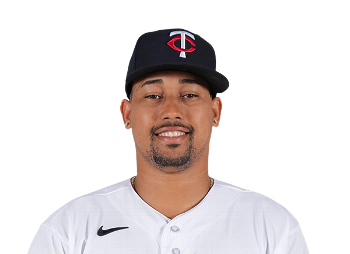 Jhoan Duran, RP, Minnesota Twins: If I’m going all-in on an upper-tier closer this season, Duran’s my man. His 101.8 mph four-seam fastball was baseball’s fastest among relievers who pitched at least 50 innings in 2023. He also generated an absurd 46% whiff rate when hitters swung at his curveball, and his splitter played a huge part in boosting his ground-ball rate to its final 66% number. You can’t ask for a much more complete, closer-worthy skill set than Duran’s, and yet, he’s only barely going for the price of a top-five pick at his position.
Jhoan Duran, RP, Minnesota Twins: If I’m going all-in on an upper-tier closer this season, Duran’s my man. His 101.8 mph four-seam fastball was baseball’s fastest among relievers who pitched at least 50 innings in 2023. He also generated an absurd 46% whiff rate when hitters swung at his curveball, and his splitter played a huge part in boosting his ground-ball rate to its final 66% number. You can’t ask for a much more complete, closer-worthy skill set than Duran’s, and yet, he’s only barely going for the price of a top-five pick at his position.
 Maikel Garcia, 3B, Kansas City Royals: Summoned by the Royals last May when Nicky Lopez was sidelined due to appendicitis, Garcia quickly grabbed the team’s everyday 3B role, emerging as the leadoff hitter by midseason. Garcia’s combination of elite speed, plate discipline and defense give him a high floor — a big deal when we’re talking about players whose best contributions are stolen bases. However, he’s more capable with the bat than you might think, having placed 11th in the league in hard-hit rate (51.0%) and seventh in line-drive rate (29.2%). He’s going outside the top 200 in rotisserie leagues thus far, making him a tremendous value.
Maikel Garcia, 3B, Kansas City Royals: Summoned by the Royals last May when Nicky Lopez was sidelined due to appendicitis, Garcia quickly grabbed the team’s everyday 3B role, emerging as the leadoff hitter by midseason. Garcia’s combination of elite speed, plate discipline and defense give him a high floor — a big deal when we’re talking about players whose best contributions are stolen bases. However, he’s more capable with the bat than you might think, having placed 11th in the league in hard-hit rate (51.0%) and seventh in line-drive rate (29.2%). He’s going outside the top 200 in rotisserie leagues thus far, making him a tremendous value.
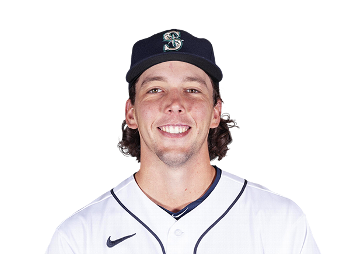 Logan Gilbert, SP, Seattle Mariners: Though often overshadowed by rotation-mates Luis Castillo and George Kirby, Gilbert wasn’t much less productive last season, placing 15th among starting pitchers both on the Player Rater and in terms of fantasy points scored. In fact, he matched Kirby’s 410 point total in 2023. But what gives Gilbert a chance at further growth was the continued progress with his splitter, his go-to pitch with two strikes and the one responsible for elevated 26.0% strikeout and 28% miss rates over his final 10 starts. He’s only barely going as a top-20 fantasy starting pitcher thus far, but isn’t far off a top-10 SP true value.
Logan Gilbert, SP, Seattle Mariners: Though often overshadowed by rotation-mates Luis Castillo and George Kirby, Gilbert wasn’t much less productive last season, placing 15th among starting pitchers both on the Player Rater and in terms of fantasy points scored. In fact, he matched Kirby’s 410 point total in 2023. But what gives Gilbert a chance at further growth was the continued progress with his splitter, his go-to pitch with two strikes and the one responsible for elevated 26.0% strikeout and 28% miss rates over his final 10 starts. He’s only barely going as a top-20 fantasy starting pitcher thus far, but isn’t far off a top-10 SP true value.
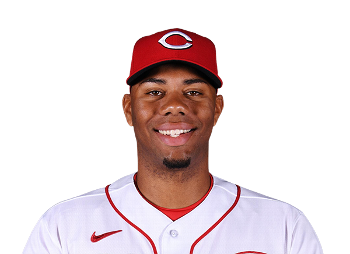 Hunter Greene, SP, Cincinnati Reds: Typically, I try to avoid duplication between this list and my Kings of Command, but there’s going to be plenty of crossover between the two and Greene is a personal favorite from that list. A favorite Greene stat of mine: He and Spencer Strider are the only pitchers in history with at least 100 innings pitched and a 30% strikeout rate in both of their first two MLB seasons. Greene’s control has been a tad shaky this spring, but his raw stuff remains electric. For the price, he’s well worth taking the chance on a prospective breakthrough.
Hunter Greene, SP, Cincinnati Reds: Typically, I try to avoid duplication between this list and my Kings of Command, but there’s going to be plenty of crossover between the two and Greene is a personal favorite from that list. A favorite Greene stat of mine: He and Spencer Strider are the only pitchers in history with at least 100 innings pitched and a 30% strikeout rate in both of their first two MLB seasons. Greene’s control has been a tad shaky this spring, but his raw stuff remains electric. For the price, he’s well worth taking the chance on a prospective breakthrough.
 Riley Greene, OF, Detroit Tigers: While he hasn’t put forth eye-popping cumulative numbers in his two MLB seasons, Greene showed glimpses of prospective greatness between the injuries that largely held his 2023 in check. Over a 60-game stretch at one point last summer — granted, spanning his June IL stint — he hit .344/.402/.557, during which time his Statcast expected wOBA was 10 points greater than his actual number (.418-.408). Greene had better-than-70th-percentile Barrel and sprint-speed numbers in 2023, underscoring his power/speed potential. There’s a very real chance he could be primed for a 25/15 season.
Riley Greene, OF, Detroit Tigers: While he hasn’t put forth eye-popping cumulative numbers in his two MLB seasons, Greene showed glimpses of prospective greatness between the injuries that largely held his 2023 in check. Over a 60-game stretch at one point last summer — granted, spanning his June IL stint — he hit .344/.402/.557, during which time his Statcast expected wOBA was 10 points greater than his actual number (.418-.408). Greene had better-than-70th-percentile Barrel and sprint-speed numbers in 2023, underscoring his power/speed potential. There’s a very real chance he could be primed for a 25/15 season.
 Vladimir Guerrero Jr., 1B, Toronto Blue Jays: I typically don’t put stock in “best shape of my life” storylines, but Guerrero’s is compelling, considering past off-and-on questions about his build and his defensive ability, plus the massive bad luck that plagued him throughout 2023. His three-year average is .283/.362/.508 with 35 home runs, yet Statcast said he should have had a batting average 14 points and a wOBA 13 points higher during that time. By the way, the last time Guerrero reported to spring training with similarly good vibes about his physique, he finished fourth overall on the Player Rater and second in fantasy points scored.
Vladimir Guerrero Jr., 1B, Toronto Blue Jays: I typically don’t put stock in “best shape of my life” storylines, but Guerrero’s is compelling, considering past off-and-on questions about his build and his defensive ability, plus the massive bad luck that plagued him throughout 2023. His three-year average is .283/.362/.508 with 35 home runs, yet Statcast said he should have had a batting average 14 points and a wOBA 13 points higher during that time. By the way, the last time Guerrero reported to spring training with similarly good vibes about his physique, he finished fourth overall on the Player Rater and second in fantasy points scored.
 Hunter Harvey, RP, Washington Nationals: It took him five years and three organizations, but Harvey finally settled in as a dominating late-inning force for the Nationals in 2023, saving 10 games while adding 19 holds. Harvey’s control was markedly improved, his 5.5% walk rate easily his lowest in any professional season in which he worked as many as 50 innings, and he did it all while maintaining excellent metrics with his four-seamer and splitter. He’s clearly the best fit for the ninth inning from a skills perspective among Nationals relievers, but the lack of any actual promise that the role is his makes him a relative bargain in early drafts.
Hunter Harvey, RP, Washington Nationals: It took him five years and three organizations, but Harvey finally settled in as a dominating late-inning force for the Nationals in 2023, saving 10 games while adding 19 holds. Harvey’s control was markedly improved, his 5.5% walk rate easily his lowest in any professional season in which he worked as many as 50 innings, and he did it all while maintaining excellent metrics with his four-seamer and splitter. He’s clearly the best fit for the ninth inning from a skills perspective among Nationals relievers, but the lack of any actual promise that the role is his makes him a relative bargain in early drafts.
 MJ Melendez, OF, Kansas City Royals: Kauffman Stadium has done quite a number on his home run totals. Statcast says that he should already have seven more homers through his two MLB seasons than he actually has. Melendez’s raw power metrics remain excellent, however, and his ninth-best 35% fly ball rate last year suggests that a 30-HR campaign is still a possibility, spacious home park be damned. He’s getting overlooked this spring primarily because of the loss of catcher eligibility, but few outfielders going in his range offer his level of power potential.
MJ Melendez, OF, Kansas City Royals: Kauffman Stadium has done quite a number on his home run totals. Statcast says that he should already have seven more homers through his two MLB seasons than he actually has. Melendez’s raw power metrics remain excellent, however, and his ninth-best 35% fly ball rate last year suggests that a 30-HR campaign is still a possibility, spacious home park be damned. He’s getting overlooked this spring primarily because of the loss of catcher eligibility, but few outfielders going in his range offer his level of power potential.
 Christopher Morel, OF, Chicago Cubs: He’s not nearly appreciated enough for his ability, perhaps in part because he lacks a clear, singular defensive position — although that also has its advantages. Morel’s ability to fill in at as many as seven different positions gives him a good chance to earn multi-positional eligibility in-season, and his raw power and speed are far better than you might think. He hit 37 combined home runs and had a .292 ISO between the majors and minors, with better-than-90th-percentile Statcast Barrel and hard-hit rates and 82nd-percentile sprint speed.
Christopher Morel, OF, Chicago Cubs: He’s not nearly appreciated enough for his ability, perhaps in part because he lacks a clear, singular defensive position — although that also has its advantages. Morel’s ability to fill in at as many as seven different positions gives him a good chance to earn multi-positional eligibility in-season, and his raw power and speed are far better than you might think. He hit 37 combined home runs and had a .292 ISO between the majors and minors, with better-than-90th-percentile Statcast Barrel and hard-hit rates and 82nd-percentile sprint speed.
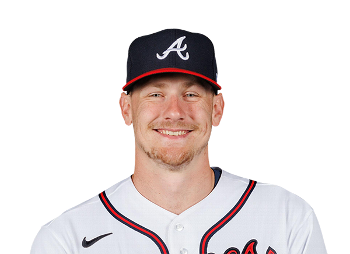 Sean Murphy, C, Atlanta Braves: Perhaps the most underrated catcher in the game, Murphy paced his position in average exit velocity (91.5 mph), Barrel rate (16.1%) and expected wOBA (.395) last season. Had he been granted an equal number of plate appearances as he had in 2022, he was on pace for 29 homers and 95 RBI. One can only wonder whether the hamstring issues that cost him a handful of games in late June had a bearing on his slipping into a near-50/50 share of the catching chores with Travis d’Arnaud during 2023’s second half. If Murphy can stay just a little bit healthier and get close to the personal-best 116 starts he made behind the plate in 2022, he’d be one of his position’s most-profitable picks.
Sean Murphy, C, Atlanta Braves: Perhaps the most underrated catcher in the game, Murphy paced his position in average exit velocity (91.5 mph), Barrel rate (16.1%) and expected wOBA (.395) last season. Had he been granted an equal number of plate appearances as he had in 2022, he was on pace for 29 homers and 95 RBI. One can only wonder whether the hamstring issues that cost him a handful of games in late June had a bearing on his slipping into a near-50/50 share of the catching chores with Travis d’Arnaud during 2023’s second half. If Murphy can stay just a little bit healthier and get close to the personal-best 116 starts he made behind the plate in 2022, he’d be one of his position’s most-profitable picks.
 Josh Naylor, 1B, Cleveland Guardians: Would you believe that, from May 12 forward last season, Naylor scored 298 fantasy points, a total exceeded by only 38 other hitters? Remarkably, he did that despite missing all of August with an oblique injury, which underscores how meaningful his spike in contact and fly-ball rates were. Naylor has comfortably settled just outside the top-10 1B rankings entering the year. But among that group, he has one of the safest, most bankable skill sets — a .280-hitting, 20-HR, .200-ISO type of projection. And let’s not forget that he’s still only 26, meaning he might even have room for power growth.
Josh Naylor, 1B, Cleveland Guardians: Would you believe that, from May 12 forward last season, Naylor scored 298 fantasy points, a total exceeded by only 38 other hitters? Remarkably, he did that despite missing all of August with an oblique injury, which underscores how meaningful his spike in contact and fly-ball rates were. Naylor has comfortably settled just outside the top-10 1B rankings entering the year. But among that group, he has one of the safest, most bankable skill sets — a .280-hitting, 20-HR, .200-ISO type of projection. And let’s not forget that he’s still only 26, meaning he might even have room for power growth.
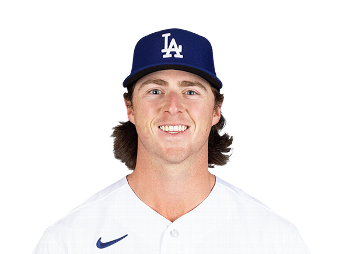 Ryan Pepiot, SP, Tampa Bay Rays: He improved his control by leaps and bounds last season, shaving what was a 9.8% walk rate in his 17 starts and two relief appearances for Triple-A Oklahoma City in 2022 (at the time his most expansive amount of usage at any pro stop in any year) to 4.0% over nine starts and five relief outings between the majors and minors last season. Now he figures to serve as a regular rotation member for the Rays, a team renowned for getting the most out of its pitchers and which plays in one of the most pitcher-friendly venues in baseball. Pepiot’s innings will almost assuredly be capped, probably in the vicinity of 150, but he’s in a great spot to get the most out of every single one of them.
Ryan Pepiot, SP, Tampa Bay Rays: He improved his control by leaps and bounds last season, shaving what was a 9.8% walk rate in his 17 starts and two relief appearances for Triple-A Oklahoma City in 2022 (at the time his most expansive amount of usage at any pro stop in any year) to 4.0% over nine starts and five relief outings between the majors and minors last season. Now he figures to serve as a regular rotation member for the Rays, a team renowned for getting the most out of its pitchers and which plays in one of the most pitcher-friendly venues in baseball. Pepiot’s innings will almost assuredly be capped, probably in the vicinity of 150, but he’s in a great spot to get the most out of every single one of them.
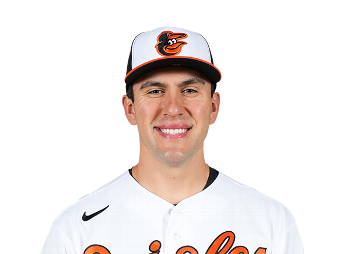 Grayson Rodriguez, SP, Baltimore Orioles: Put aside his horrid first stint in the bigs and his terrible postseason debut (1⅔ IP, 5 ER, 4 BB in the ALDS). It’s not uncommon for rookie pitchers to endure similar struggles as they adapt to the game’s most competitive level. Rodriguez’s stuff is “future Cy Young Award” elite, and it won’t be long before he’s earning votes in that balloting.
Grayson Rodriguez, SP, Baltimore Orioles: Put aside his horrid first stint in the bigs and his terrible postseason debut (1⅔ IP, 5 ER, 4 BB in the ALDS). It’s not uncommon for rookie pitchers to endure similar struggles as they adapt to the game’s most competitive level. Rodriguez’s stuff is “future Cy Young Award” elite, and it won’t be long before he’s earning votes in that balloting.
His changeup and slider were certainly elite during his strong second-half showing. The changeup was responsible for 40 of his 129 total strikeouts for the year and his slider had a 34% whiff rate. However, his fastball (despite its near-100 mph velocity at times) was often too hittable. Rodriguez should only improve that with experience, and after 163 1/3 innings last season, he should be fully equipped for a full-time starter’s workload and possible top-15 positional production.
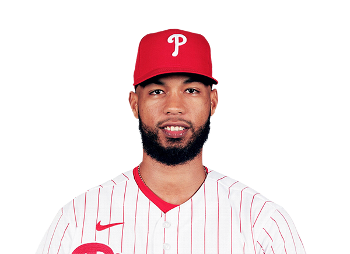 Cristopher Sanchez, SP, Philadelphia Phillies: His control improved by leaps and bounds last season, as from the date of his June 17 permanent installation in the Phillies rotation forward, his 3.7% walk rate was not only less than half his pro-career rate to that point, but also the fourth-best rate in the league. However, Sanchez didn’t stop improving his game from there. He bulked up this winter, added a cutter, and is now throwing a reported 2-mph harder this spring, all signals that he’s ready to take a step forward towards full-season, mixed-league relevance.
Cristopher Sanchez, SP, Philadelphia Phillies: His control improved by leaps and bounds last season, as from the date of his June 17 permanent installation in the Phillies rotation forward, his 3.7% walk rate was not only less than half his pro-career rate to that point, but also the fourth-best rate in the league. However, Sanchez didn’t stop improving his game from there. He bulked up this winter, added a cutter, and is now throwing a reported 2-mph harder this spring, all signals that he’s ready to take a step forward towards full-season, mixed-league relevance.
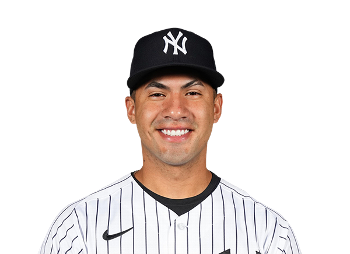 Gleyber Torres, 2B, New York Yankees: His “I pretty much did it all against the Orioles” 38-HR campaign of 2019 might now be a distant memory, but Torres has made many subtle, fantasy-relevant improvements to his game since. He’s now a much more selective hitter, going from one of the league’s more free-swinging bats during said 2019 campaign to one of its more patient. Plus, he’s coming off the best two seasons of his career to date in terms of both Statcast’s average exit velocity and hard-hit rate categories.
Gleyber Torres, 2B, New York Yankees: His “I pretty much did it all against the Orioles” 38-HR campaign of 2019 might now be a distant memory, but Torres has made many subtle, fantasy-relevant improvements to his game since. He’s now a much more selective hitter, going from one of the league’s more free-swinging bats during said 2019 campaign to one of its more patient. Plus, he’s coming off the best two seasons of his career to date in terms of both Statcast’s average exit velocity and hard-hit rate categories.
Torres hit .273 with 25 homers and 13 steals in 2023, which looked like realistic outputs for his skill set. He’s now a prime-age 27 and playing in his contract year. Pay for at least a repeat, but a career year is certainly within his reach.

